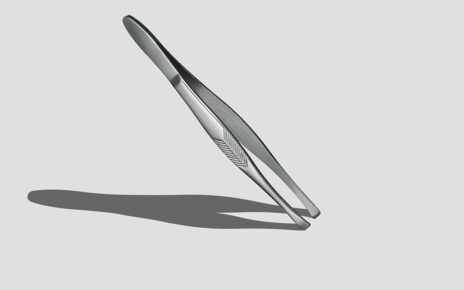A SUPER-FIT dad almost died after turning his head too quickly and severing a vital artery in his neck.
Joel Hentrich was kicking a ball around with some friends when he turned his head and felt a "pop" in the back of his neck.
"I wasn't sure if anyone else could hear it but internally I could," the 35-year-old nurse explained.
Immediately his vision changed, leaving Joel with the "worst vertigo I've ever experienced in my life."
The dad-of-four began projectile vomiting and felt a tingling in his face, hand and leg, so was rushed to hospital.
Scans revealed Joel, from Missouri, US had internally sliced a vital artery – which provides blood to the spinal chord and brain.
Read more on strokes
Urgent warning to anyone who’s had common virus over increased risk of stroke
Seven in ten heart attacks & strokes ‘could be prevented with better sleep’
The doctors also discovered the accident – which had cut blood supply off to the brain – had caused Joel to suffer three life-threatening strokes.
For Joel, who plays several sports in his free time and considers himself "healthy" the news hit "like a tonne of bricks".
You don't think that these things will actually happen to you," he said.
Over 100,000 people suffer a stroke every year in the UK and they're responsible for over 38,000 deaths.
Most read in Health
Rishi Sunak doesn't need to see a GP to know the NHS is in trouble
I'm an acupuncturist – here's a 'magic' spot on your face that wakes you up
Two simple steps to boost your immune system and ward off nasty bugs this winter
Parents rave over 'miracle' treatment that clears up baby's agonising eczema
And even for the 1.3 million Brits who have survived a stroke – many living with disabilities.
Joel was then sent to intensive care and had an MRI later on that day.
Two weeks after his freak accident, Joel was finally able to walk again.
"It was just such a wonderful feeling because I didn't really know until that point in time what the outcome was truly going to be.
What are the symptoms?
The FAST method – which stands for Face, Arms, Speech, Time – is the easiest way to remember the most common symptoms of stroke:
F = Face drooping – if one side of a person's face is dropped or numb then ask them to smile, if it's uneven then you should seek help.
A = Arm weakness – if one arm is weak or numb then you should ask the person to raise both arms. If one arm drifts downwards then you might need to get help
S = Speech difficulty – if a person's speech is slurred then this could be a sign of a stroke
T = Time to call 999 – if a person has the signs above then you need to call 999 in the UK or 911 in the US for emergency care.
Other symptoms include:
- sudden weakness or numbness on one side of the body
- difficulty finding words
- sudden blurred vision or loss of sight
- sudden confusion, dizziness or unsteadiness
- a sudden and severe headache
- difficulty understanding what others are saying
- difficulty swallowing
If any of these symptoms occur for less than a few hours, you could be suffering from a transient ischaemic attack (TIA).
This attack, which is sometimes known as a "mini-stroke", indicates that there is a problem with the blood supply to your brain.
It’s important to contact your GP or local hospital if experiencing these symptoms, as they could increase your risk of stroke in the near future.
Source: NHS
"It was a special moment to be able to get up and realise that I could still walk, balance and live my life how I did before this," he explained.
After the horrifying experience, Joel is now keen to raise awareness of the symptoms of strokes and the importance of getting medical care within a specific time, to prevent irreversible damage.
"I'm extremely lucky that I got treatment in the time that I did because I don't have any lasting physical deficits."
"If I hadn't had the treatment, I don't know if I could have died too. There's always that possibility, so I do feel very grateful," he added.
Around one in eight people who suffer a stroke die within 30 days, so it is vital to get medical assistance as soon as possible – the sooner somebody is treated, the more likely they are to survive.
Joel has launched a GoFundMe page to raise money to help provide financial support for his family during his recovery, while he waits for short term disability funding to come through.
So far, the dad has raised $3,430 (£2,830) of his $6,000 (£4,950) goal.
Source: Read Full Article









